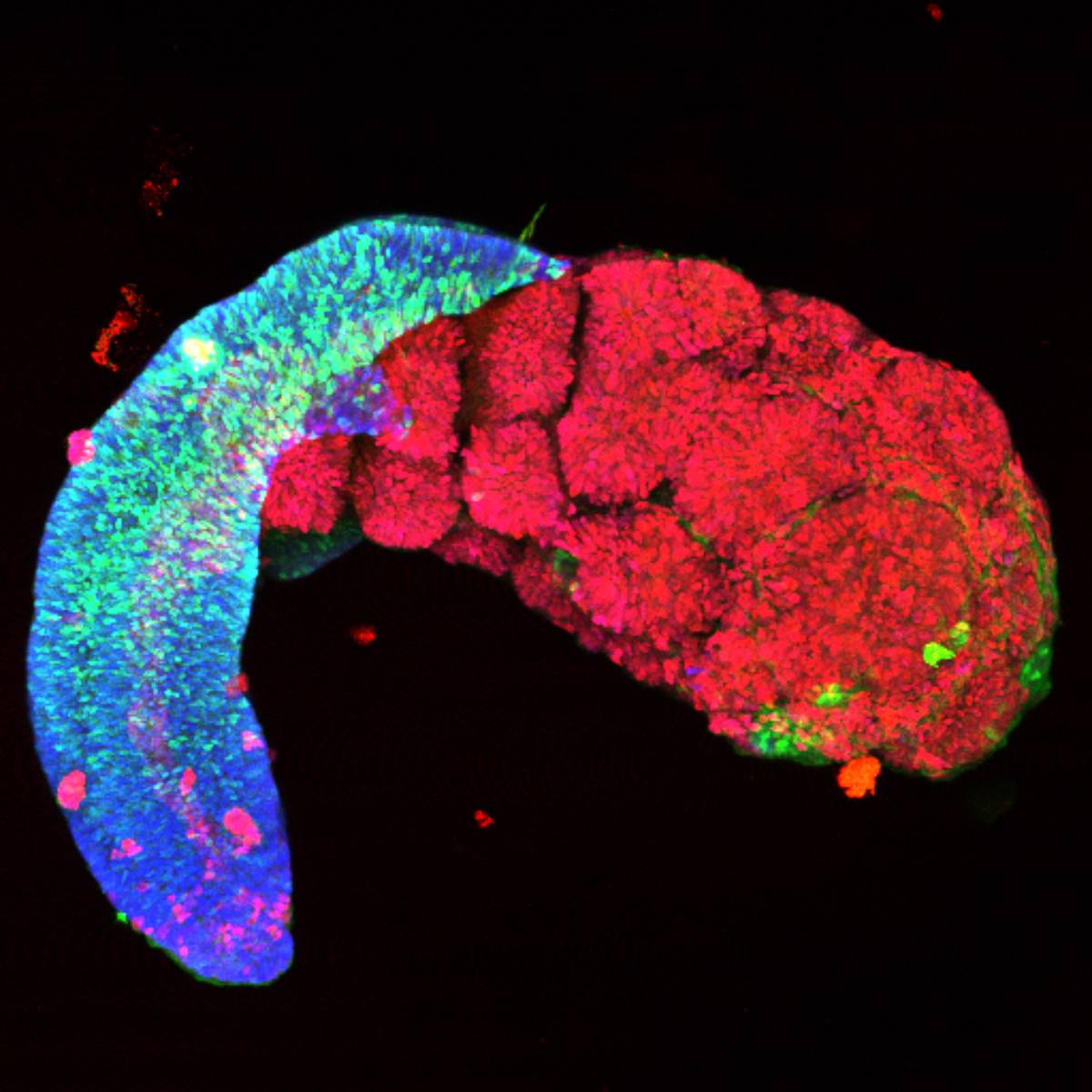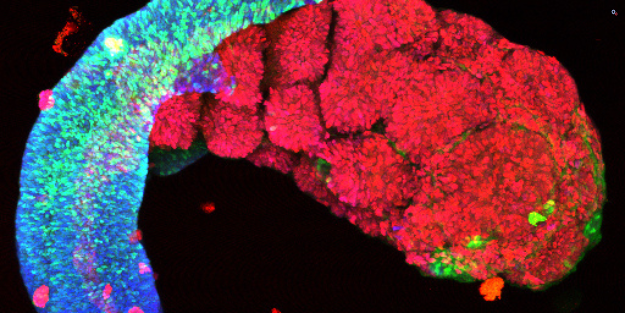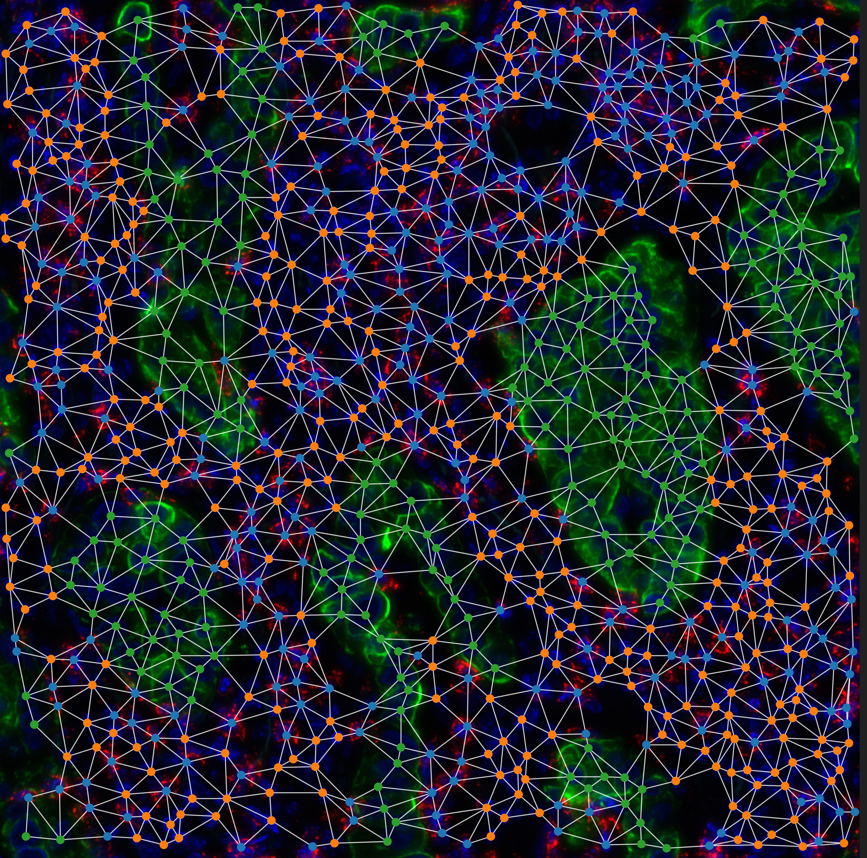
CELL EXP
Challenge : Specialized experimental systems
Overview
The ambition of the Cell-Exp project is to develop dedicated models to study physiological and pathological embryonic development, focusing on brain development. These models will be used to identify, at the cellular level, physiological trajectories and detect early cellular and molecular signs of alterations leading to the development of these pediatric brain cancers.
Gaelle Legube, head of the “Chromatin and DNA repair” team of the UMR 5077 unit of molecular, cellular and developmental biology of the Center for Integrative Biology in Toulouse.
Stéphane Nédélec, head of the “Stem Cells and Neurodevelopment” team at the Inserm UMR 1341 / CNRS 8265 / Sorbonne University Institute du Fer à Moulin.
Study of cellular interactions via cerebral organoids and data visualization, to simulate the mutations that cause cancerous tumors

Key objectives
- Identify cell diversity, specific trajectories and their regulators in several regions of the nervous system particularly susceptible to pediatric cancers
- Develop/improve neural organoids to model the development of these regions
- Provide reference maps for cancer model analyses
Key actions
Mapping embryonic and fetal development in regions susceptible to pediatric cancers
- Multidimensional mapping of cell identities and their differentiation trajectories to generate a reference map for improving organoid models and studying diseases
Development or enhancement of regionalized neural organoids derived from pluripotent stem cells
- Iterative process for improving the homogeneity and fidelity of neural organoid models by comparing in vitro and embryonic mapping
- Multidimensional mapping of regionalized neural organoid development to 1) study the dynamics of differentiation and 2) to develop models and reference data for the study of disease
Organoids for modeling pediatric cancers
- Develop organoid chimeras composed of healthy cells and cells carrying oncogenic mutations to monitor tumor progression
- Help develop the use of human organoids for studies on tumor formation
Expected results
- A 3D atlas of cell diversity dynamics in cancer-prone regions of the human nervous system. A reference atlas for studies of neural organoids.
- High-resolution multiparametric mapping of cell diversity and differentiation trajectories in organoids.
- Analysis of genetic networks specifying neuronal diversity
- Robust protocols for the generation of reliable and reproducible regional neural organoids
- Establishing robust pipelines for modeling pediatric tumors using regional neural organoids
This project will contribute to the study of the mechanisms of human neurodevelopment and the development of relevant ex vivo models for the study of pediatric brain cancers, while meeting the objective of reducing animal experimentation in biomedical research.
Les autres projets PEPR


